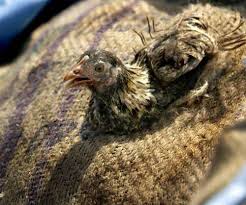The European Commission on Monday said the Netherlands and Britain have taken sufficient steps to curb recent outbreaks of bird flu in poultry farms.
According to officials, the strain is different from the H5N1 virus that is deadly to humans.
However, World Health Organisation said it has killed almost 400 people globally since 2003, while most cases have been recorded in Asia.
According to the country’s Economy Ministry, Dutch authorities detected the H5N8 strain of bird flu at the weekend in a poultry farm near the city of Gouda of The Hague.
The European Commission, which must be notified of such outbreaks, said that all 150,000 egg-laying chickens at the farm have been killed, while the Netherlands has imposed a three-day transport ban on live poultry, eggs and other poultry products.
According to commission spokesman, Enrico Brivio, the European Union’s executive was also informed of an outbreak at a duck farm in the British region of Yorkshire.
He added that all 6,000 ducks were killed and measures were taken to prevent the spread of the outbreak.
“All the protocols were followed, we can only praise the behaviour of the authorities of the two member states,’’ Brivio said.
He said that agricultural experts would likely meet later this week to assess if further measures were necessary, adding that the cause of the outbreak was currently unclear.
“It is very probably that it has come from migratory birds, from wild birds,’’ Brivio said.
Earlier this month, around 31,000 turkeys were slaughtered in north-eastern Germany after bird flu was discovered there.
However, it was found to be related to a H5N8 strain discovered in South Korea.













